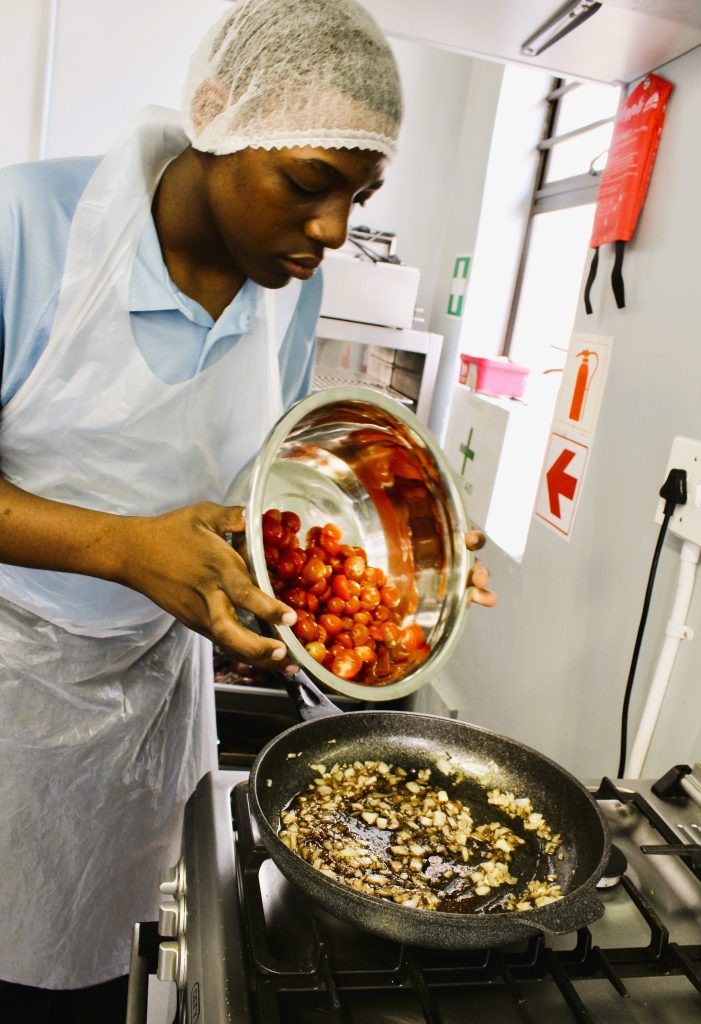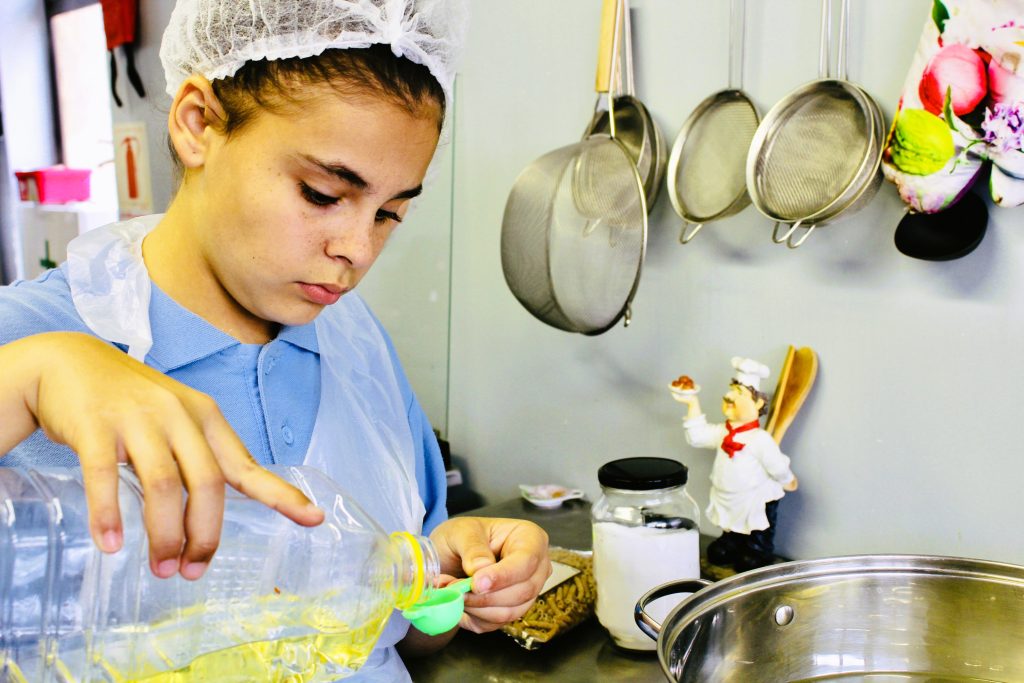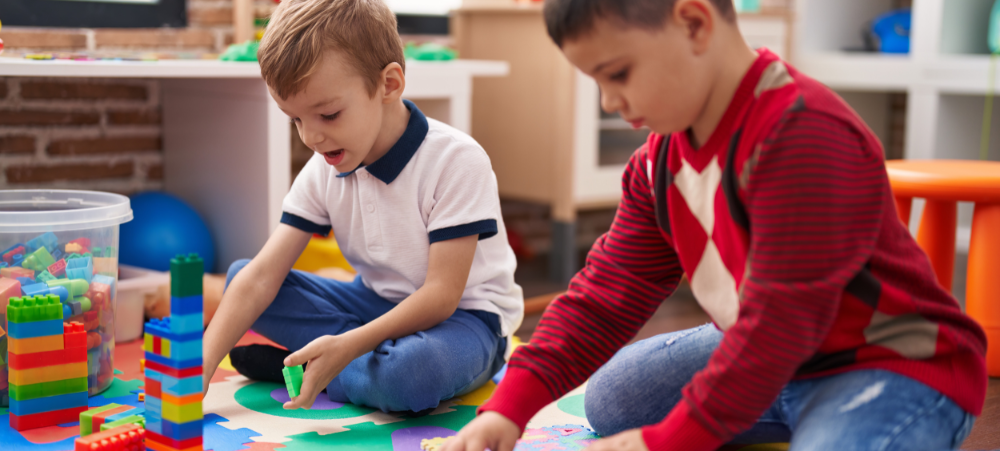At Glenoaks Remedial and Vocational School for Neurodiverse learners, Hospitality classes are an important part of the Vocational curriculum. Not only does this subject prepare our learners for possible work opportunities and more independence, but also provides unique opportunities for learners to develop important life and social skills.
Cooking can be a relaxing and enjoyable activity that brings people together. For individuals on the autism spectrum, cooking offers a variety of benefits beyond just a delicious meal. Cooking can help develop fine motor skills, increase independence, improve focus and attention, and provide a sense of accomplishment. Cooking can also be a fun way to experiment with flavours and textures, encouraging people to try new foods and expand their palate.

How cooking helps individuals on the autism spectrum
- Cooking can be an extremely beneficial activity for individuals on the autism spectrum. It provides sensory experiences that can be very helpful in their growth and independence. For instance, measuring ingredients helps with fine motor skills, and the smells and textures of food can help with sensory processing.
- Cooking also provides a structured activity that can be calming. Following a recipe can provide a sense of order and predictability, which can be very beneficial for individuals with autism who may struggle with change.
- In addition, cooking can help with social skills. Cooking with others encourages communication, patience, and teamwork. It can also provide opportunities for individuals with autism to practice turn-taking and other social skills in a safe and supportive environment.
- Cooking is also a practical life skill that can help individuals on the autism spectrum become more independent. Learning how to cook their own meals can give them a sense of accomplishment and self-sufficiency, which can be empowering.
Sensory issues and cooking
One of the core challenges for people with ASD is sensory processing difficulties. Cooking provides a multi-sensory experience that can help individuals with ASD to develop their sensory processing skills.
Individuals on the autism spectrum often experience sensory issues that can make everyday activities challenging. Cooking, however, can be a great way to address these issues and help them feel more comfortable and confident in the kitchen.
For example, cooking can help individuals with sensory issues learn to tolerate different smells and textures of food. By gradually exposing them to different ingredients and cooking methods, they can learn to overcome their aversions and develop a more varied and healthy diet.
How to make cooking successful for individuals with ASD
For individuals with ASD, cooking can be a fun and rewarding activity, but it requires some preparation and adjustments to make it successful. Here are some tips to make cooking successful:
1. Break down the steps: Cooking can be overwhelming for some individuals with ASD, so it’s important to break down the steps into small, manageable tasks. Use visual aids such as pictures, lists, or videos to help them understand the steps involved.
2. Use simple recipes: Choose recipes that are simple, easy to follow, and require minimal equipment. Avoid recipes with complicated instructions, multiple steps, or ingredients that are difficult to find.
3. Create a routine: Establishing a routine can help individuals with ASD feel more comfortable and confident in the kitchen. Choose a specific time and day each week to cook together, and stick to the routine as much as possible.
4. Use sensory-friendly tools: Individuals with ASD can be sensitive to certain textures, smells, or sounds, so it’s important to use sensory-friendly tools such as gloves, silicone utensils, noise-canceling headphones, or non-slip mats.
5. Make it fun: Cooking should be a fun and enjoyable experience, so try to make it fun by incorporating games, challenges, or rewards. For example, you can have a cooking competition or a taste-testing activity.6. Encourage independence. As individuals with ASD become more comfortable in the kitchen, encourage them to take on more complex recipes and tasks. This can help build independence and confidence.
 Overall, cooking can be a great activity for individuals with ASD, as it can help them develop new skills, build confidence, and improve social interactions. By following these tips, you can make cooking a successful and enjoyable experience for them.
Overall, cooking can be a great activity for individuals with ASD, as it can help them develop new skills, build confidence, and improve social interactions. By following these tips, you can make cooking a successful and enjoyable experience for them.
Cooking is a wonderful activity that can provide a sense of routine, structure and independence. It can also help with sensory integration, fine motor skills and socialization. By following the tips we shared, you can make cooking a fun and therapeutic experience for individuals on the autism spectrum. We hope that this article inspires you to try cooking with your loved ones with autism and that it brings a new sense of joy and fulfilment into your lives.
Written by Bronwynn Wessels – Hospitality Teacher – Glenoaks Remedial and Vocational School
- When to Push My Child and When to Step Back - March 18, 2024
- Benefits of Including STEM into the Classroom - March 5, 2024
- The Role of Parents in the Education of Special Needs Children and Fostering a Collaborative Approach - February 21, 2024






